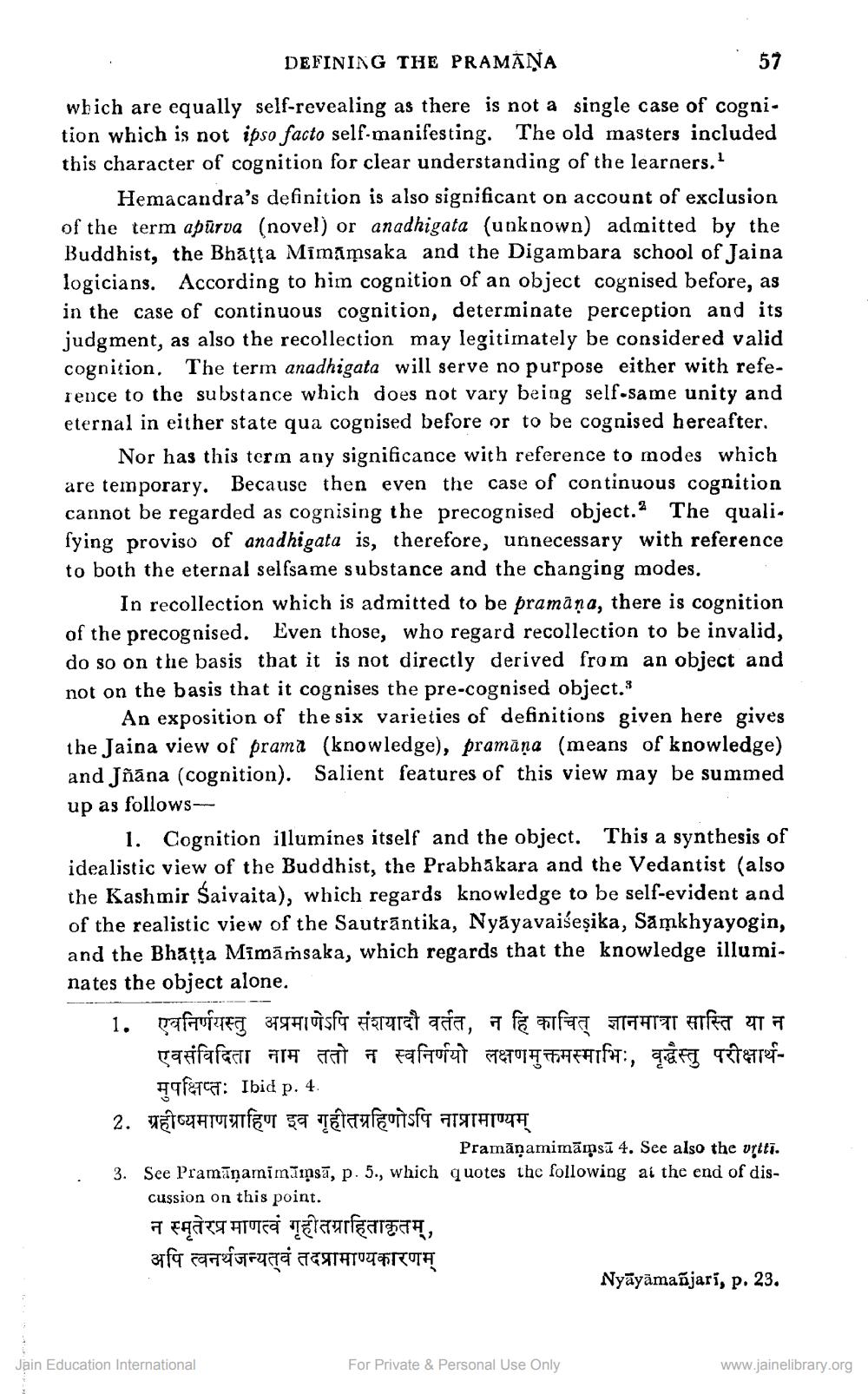________________
DEFINING THE PRAMĀŅA
57
which are equally self-revealing as there is not a single case of cogni. tion which is not ipso facto self-manifesting. The old masters included this character of cognition for clear understanding of the learners."
Hemacandra's definition is also significant on account of exclusion of the term apūrva (novel) or anadhigata (unknown) admitted by the Buddhist, the Bhāțța Mimamsaka and the Digambara school of Jaina logicians. According to him cognition of an object cognised before, as in the case of continuous cognition, determinate perception and its judgment, as also the recollection may legitimately be considered valid cognition. The term anadhigata will serve no purpose either with reference to the substance which does not vary being self-same unity and eternal in either state qua cognised before or to be cognised hereafter.
Nor has this term any significance with reference to modes which are temporary. Because then even the case of continuous cognition cannot be regarded as cognising the precognised object. The quali. fying proviso of anadhigata is, therefore, unnecessary with reference to both the eternal selfsame substance and the changing modes.
In recollection which is admitted to be pramāņa, there is cognition of the precognised. Even those, who regard recollection to be invalid, do so on the basis that it is not directly derived from an object and not on the basis that it cognises the pre-cognised object.*
An exposition of the six varieties of definitions given here gives the Jaina view of prama (knowledge), pramāņa (means of knowledge) and jñāna (cognition). Salient features of this view may be summed up as follows
1. Cognition illumines itself and the object. This a synthesis of idealistic view of the Buddhist, the Prabhakara and the Vedantist (also the Kashmir Saivaita), which regards knowledge to be self-evident and of the realistic view of the Sautrāntika, Nyāyavaiseșika, Samkhyay and the Bhațța Mīmāmsaka, which regards that the knowledge illumi. nates the object alone. 1. एवनिर्णयस्तु अप्रमाणेऽपि संशयादौ वर्तत, न हि काचित् ज्ञानमात्रा सास्ति या न
एवसंविदिता नाम ततो न स्वनिर्णयो लक्षणमुक्तमस्माभिः, वृद्धस्तु परीक्षार्थ
79f2797: Ibid p. 4. 2. ग्रहीष्यमाणग्राहिण इव गृहीतग्रहिणोऽपि नाप्रामाण्यम्
Pramāṇamimāmsā 4. See also the vrtti. 3. See Pramāņamimīısā, p. 5., which quotes the following ai the end of dis
cussion on this point. न स्मृतेरप्रमाणत्वं गृहीतग्राहिताकृतम्, अपि त्वनर्थजन्यत्वं तदप्रामाण्यकारणम्
Nyāyāmañjari, p. 23.
Jain Education International
For Private & Personal Use Only
www.jainelibrary.org




